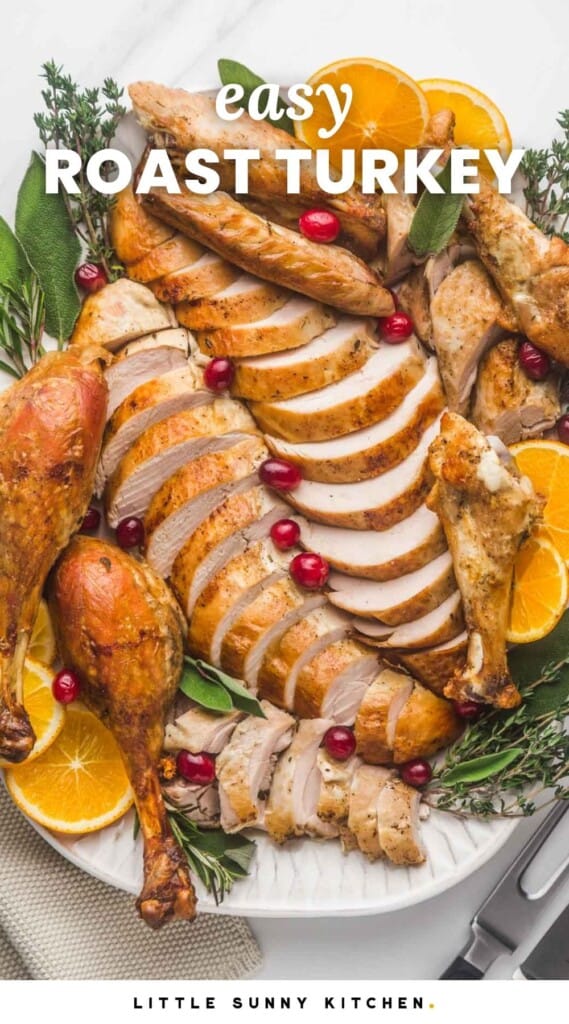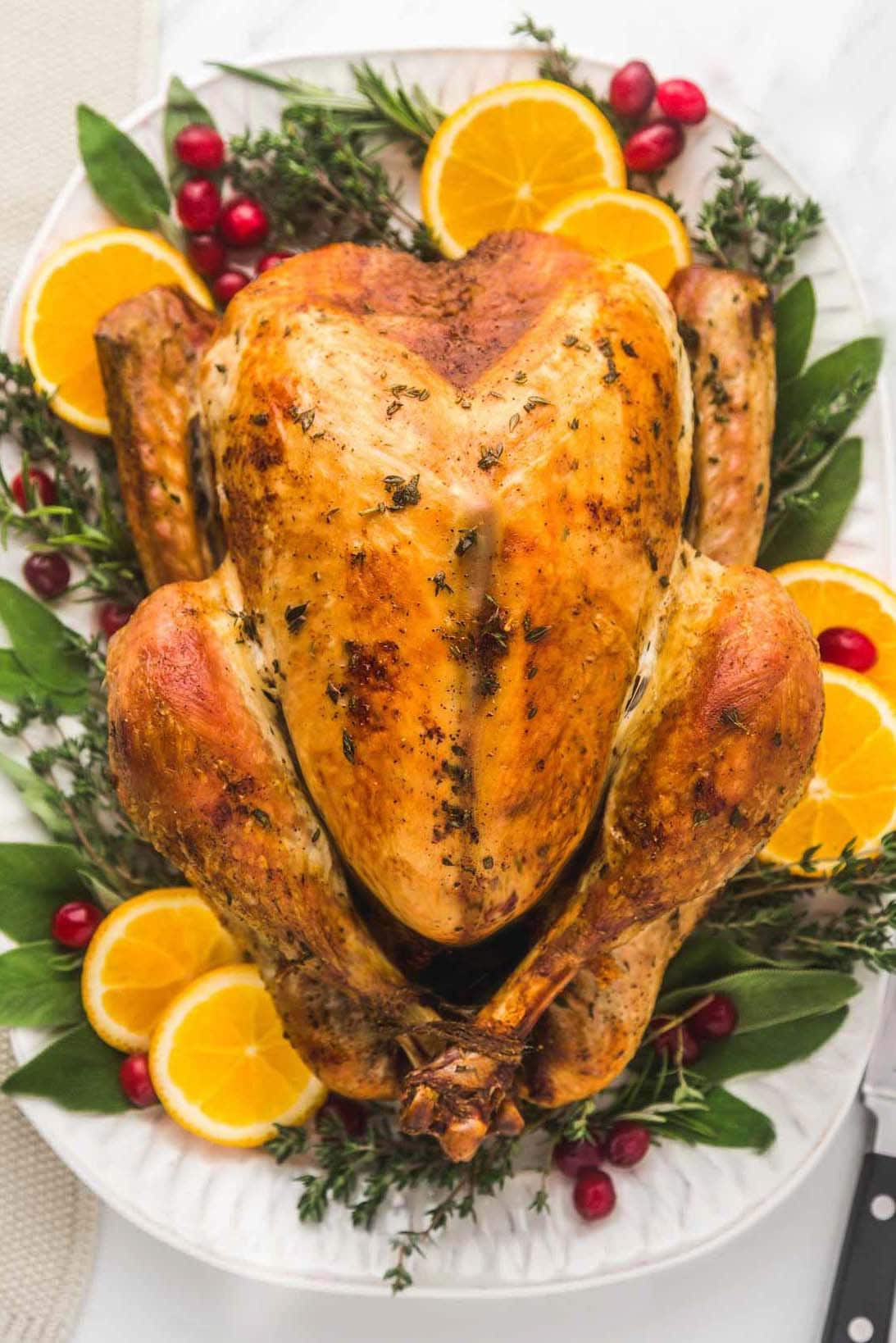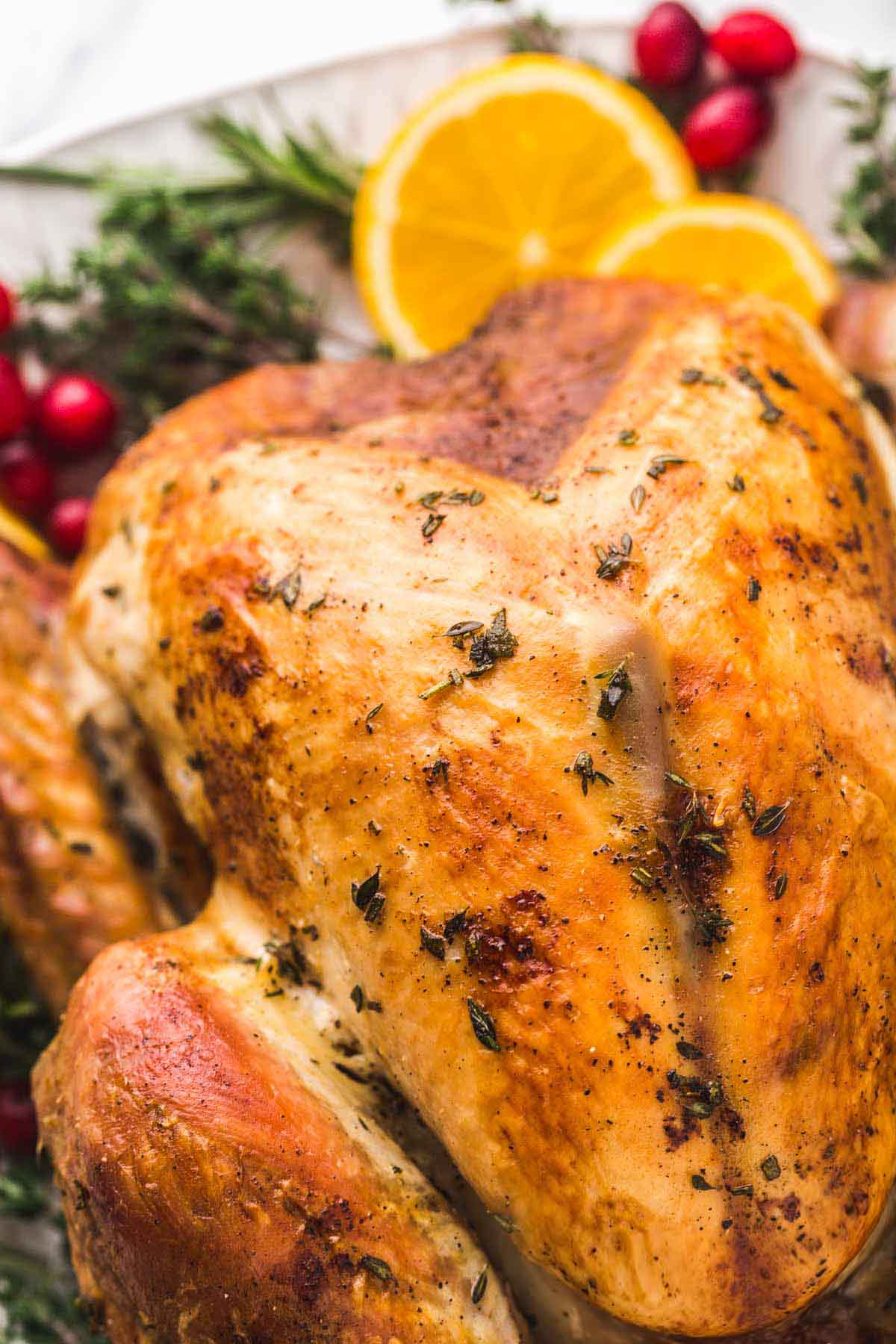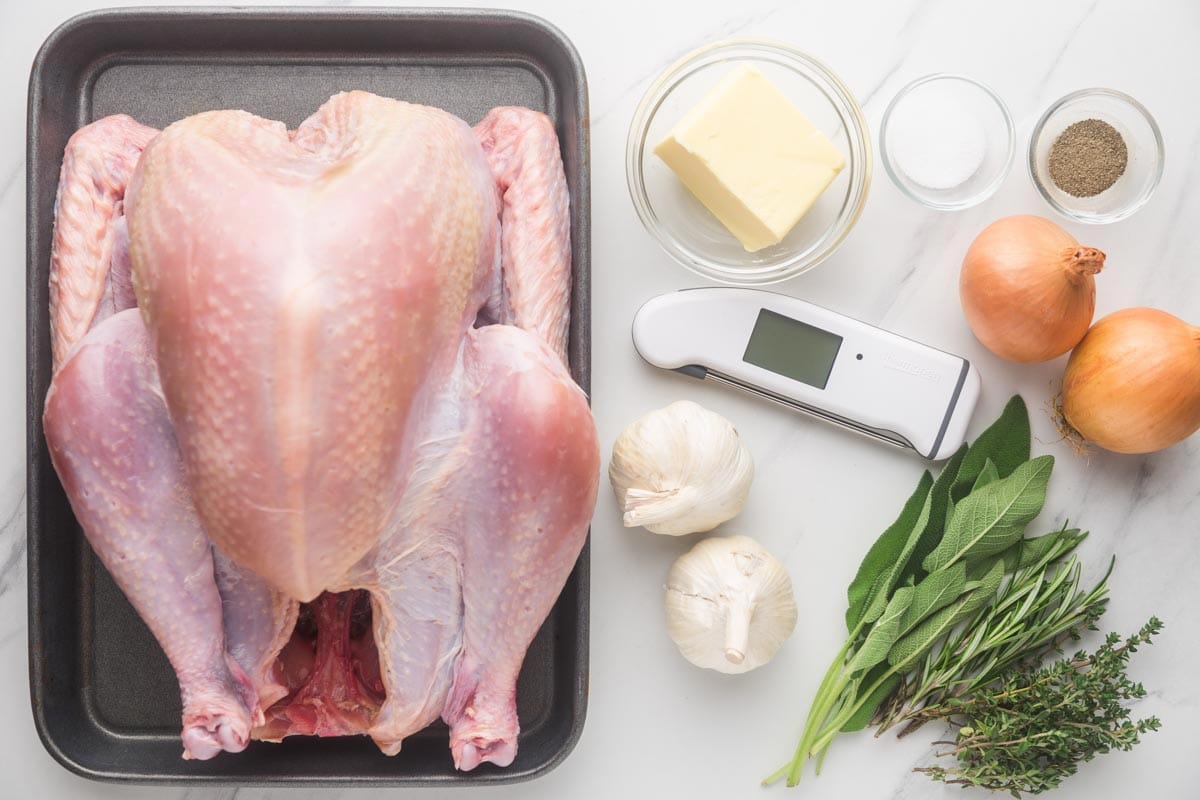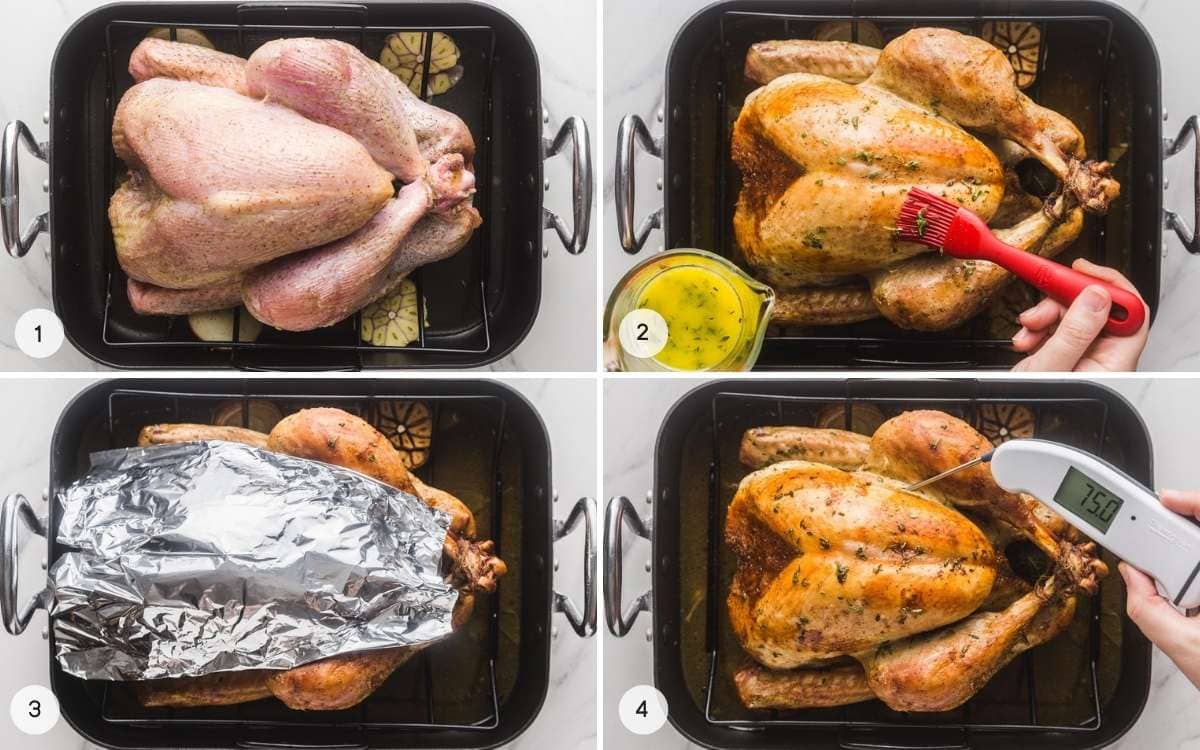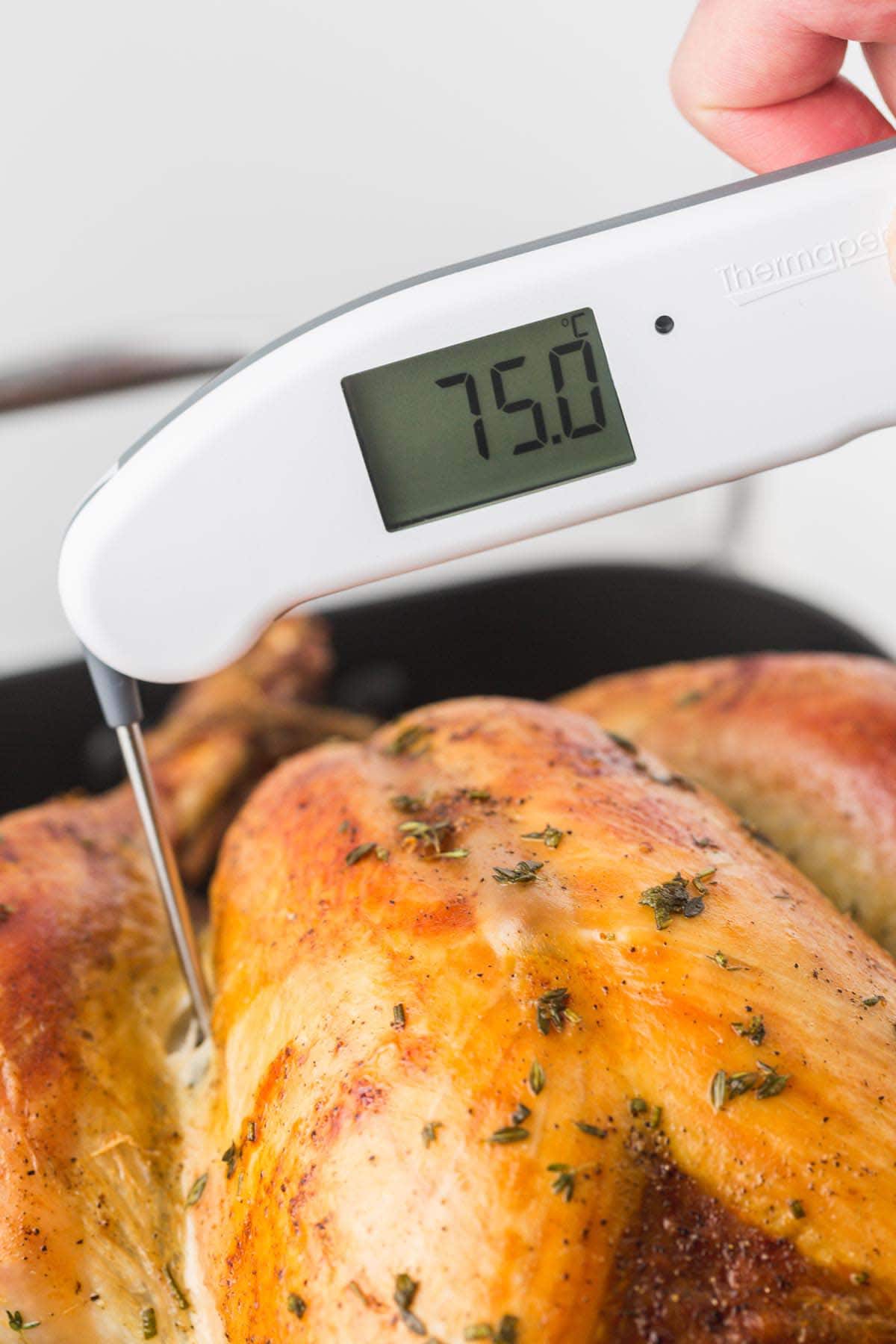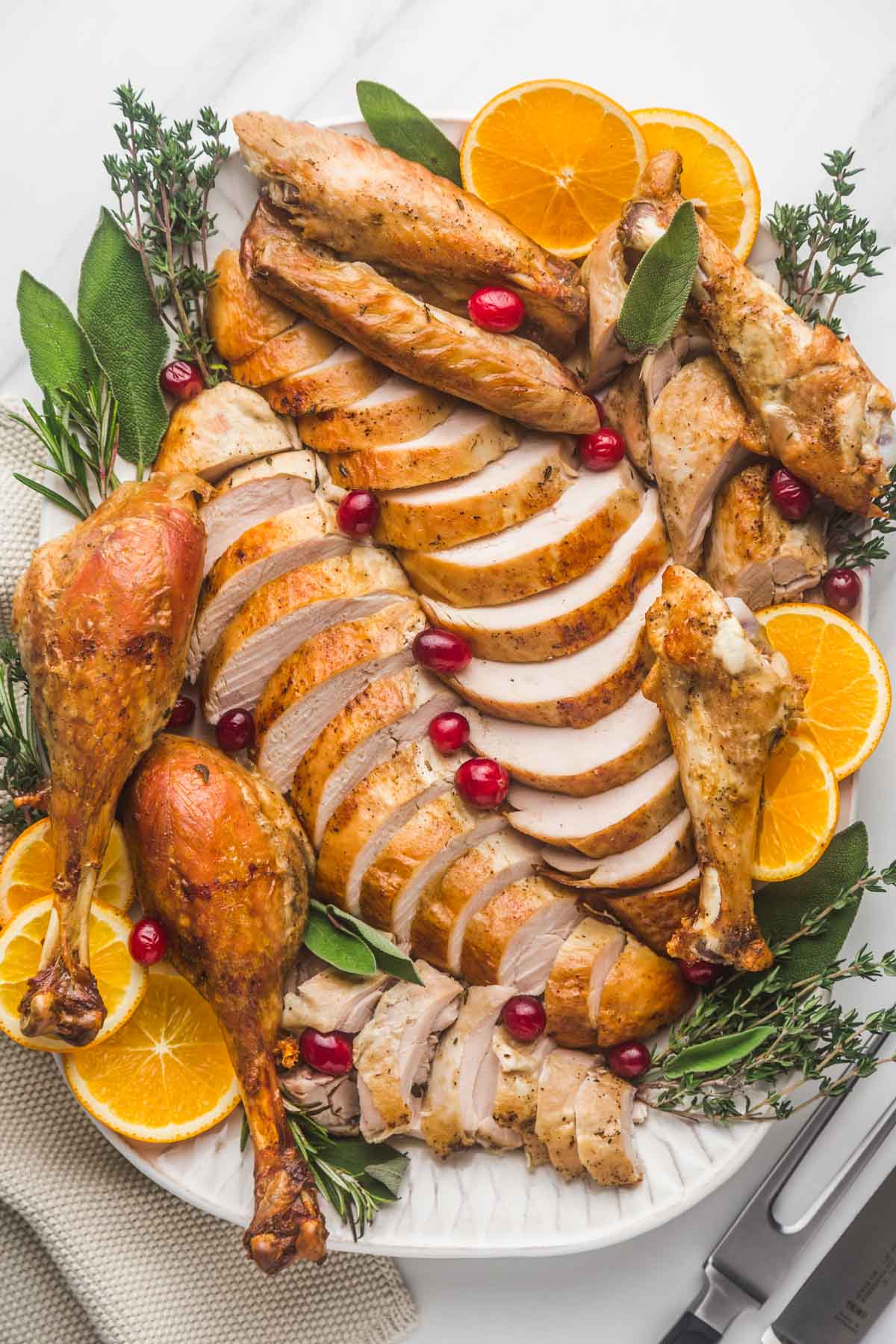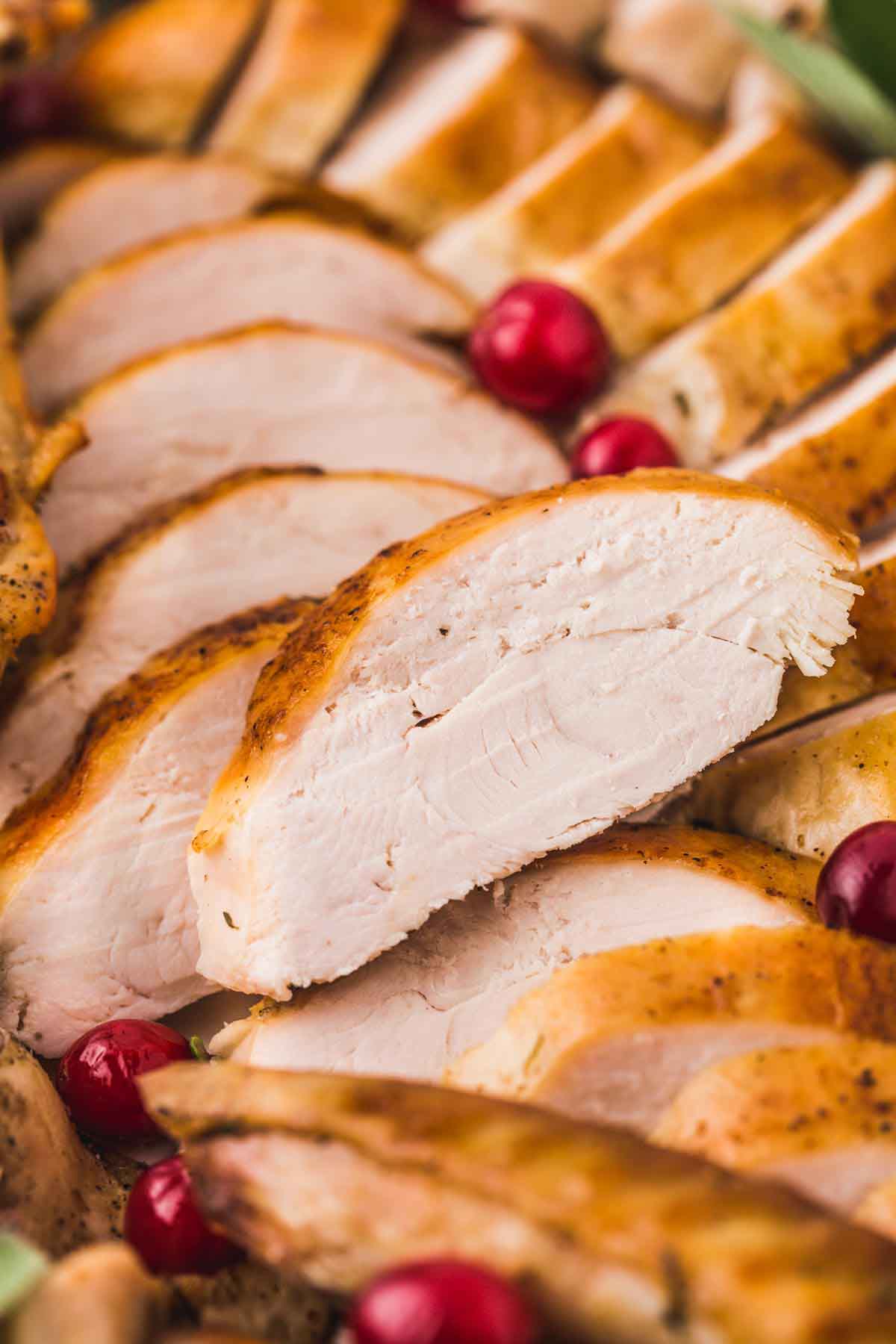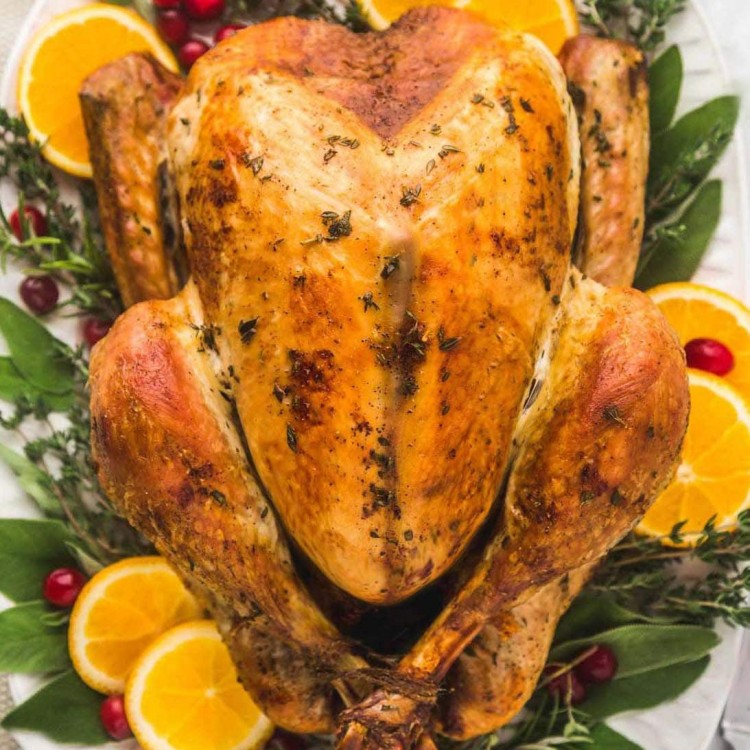When it comes to roasting a turkey, avoiding dry and tough meat is key. I understand the stress of cooking a turkey, especially since it’s often the centerpiece of a holiday meal. That’s why I’m sharing my foolproof roast turkey recipe with you. It guarantees a moist, tender, and juicy turkey with perfectly buttery crispy skin every time. It’s a straightforward recipe that is hard to mess up if you read it carefully, and follow my guidelines, tips, and tricks. And if you’re looking for something different for your holiday feast, check out my Smoked Turkey recipe, we’re obsessed with it! You can also try Grilling your Turkey, try a Spatchcock Turkey, or for a beautiful presentation go for my Bacon Wrapped Turkey.
Roast Turkey Tips
Below are a few quick tips that you need to know before you cook your turkey. For very detailed information, check out my complete turkey guide!
Think about the size of the turkey that you want to buy. You will need about 1lb/450g of turkey per adult (you will end up with half a pound of edible meat), and a total of half a pound/225g per child. The best way to defrost a frozen turkey is at the bottom of the refrigerator, it will take about 3-5 days to fully defrost depending on the size of the turkey. If you decide to brine, never brine self-basting turkey as it will end up too salty. Basting your turkey will help it cook faster, but it doesn’t make the meat moister or juicier. I don’t recommend basting as opening the oven door too often will drop the temperature of the oven. Cover the turkey breast with aluminum foil if it’s starting to brown too much, for small turkeys, it’s not necessary. The turkey is done when a meat thermometer is inserted into the thickest part of the breast reaches 165°F (74°C), and the inner thigh reaches at least 170°F (77°C).
Ingredients Needed
To make a roast turkey, here’s what you’ll need:
Turkey – fresh, or frozen and completely thawed turkey. Butter – use unsalted butter to give the turkey great flavor, keep the meat moist, and help the skin brown and crisp up. Aromatics – onion, garlic, and mixed fresh herbs like thyme, rosemary, sage, and parsley. Salt and pepper – table salt and freshly ground black pepper. Meat Thermometer – a reliable kitchen thermometer is not an ingredient, but an essential when it comes to cooking turkeys!
How to Roast a Turkey
Keep Checking The Temperature
The most important thing when it comes to cooking a turkey is to get it to the right temperature to ensure that it is safe to eat, and that the meat is tender, juicy, moist, and never dry. I overcooked turkeys before, and trust me, there’s nothing worse than dry turkey meat! So my biggest recommendation when it comes to cooking a turkey is to get the guesswork out of cooking and invest in a really good kitchen thermometer. And to be honest, it’s a kitchen essential that I use to properly cook all types of poultry and meat, and it’s also handy when it comes to candy-making and baking. If your turkey is undercooked, it’s not safe to eat and you run the risk of food poisoning. If it’s overcooked, then it will be dry and tough, and your turkey dinner will be ruined. So I will say it again, a kitchen thermometer is crucial so invest in a really good kitchen thermometer like the Thermapen to cook your turkey to perfection this Thanksgiving!
Stuffing and Cooking Time
If you love stuffing, then I recommend that you cook it separately instead of stuffing it in the cavity of the bird. If you cooking it in the cavity, it will add cooking time and dry out the meat. Check out my Buttery Herb Stuffing, or this Sausage Stuffing recipe. For an unstuffed bird, it should roughly take about 15 minutes per pound (450g). Here’s a rough breakdown, but remember, it is just a rough guide and you should keep checking the temperature of the meat to know when it’s done.
6 pound – 2.75kg: 1 hour and 30 minutes. 8 pound – 3.6kg: 2 hours. 10 pound – 9kg: 2 hours and 30 minutes 12 pound – 5.5kg: 3 hours. 14 pound – 6.3kg: 3 hours and 30 minutes. 16 pound – 7.25kg: 4 hours.
How to Carve a Turkey (Step-by-step)
How to Stove Leftover Turkey
Short-Term Storage
Cool Down: Allow the leftover turkey to cool to room temperature. Avoid leaving it out for more than two hours to prevent bacterial growth. Refrigerate Promptly: Cut the turkey into smaller pieces to cool it faster and place them in shallow containers. This helps in even cooling and saves space in the refrigerator. Proper Packaging: Use airtight containers or wrap the turkey tightly in plastic wrap or aluminum foil to retain moisture and prevent it from absorbing other flavors in the fridge. Refrigeration Duration: Stored this way, the turkey leftovers will remain good for 3-4 days in the refrigerator. Reheating Tips: When reheating, ensure the turkey reaches an internal temperature of 165°F (74°C) to ensure it’s safe to eat.
Extended Storage
Freeze for Longevity: For extended storage, turkey can be stored in the freezer for up to 3 months without significant loss of quality. Portioning: Divide the turkey into portions that are practical for future meals. This makes it easier to thaw only what you need. Freezer-Safe Packaging: Wrap the turkey tightly in freezer-safe plastic wrap, aluminum foil, or place it in freezer bags. Squeeze out as much air as possible to prevent freezer burn. Label and Date: Label each package with the date, so you can keep track of how long the turkey has been stored. Thawing Safely: When ready to use, thaw the turkey in the refrigerator, not at room temperature. Depending on the portion size, this can take several hours or overnight.
What Sides to Serve With Turkey?
Cranberry Sauce Mashed potatoes Green Bean Casserole Roasted brussels sprouts Brown sugar glazed carrots Scalloped potatoes The best ever stuffing recipe Turkey Dessert Cheese Ball Pecan Pie Cheesecake
© Little Sunny Kitchen
